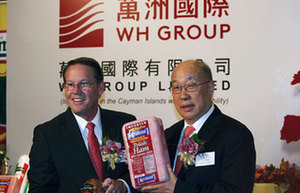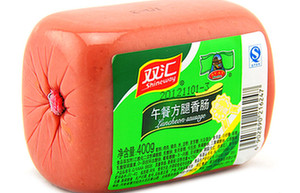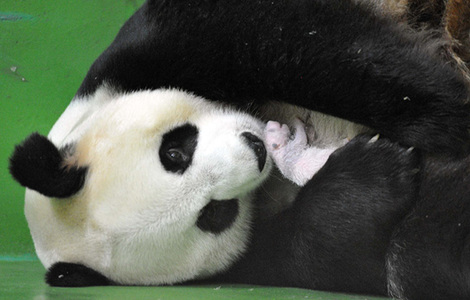China halts some US pork imports over feed additive use
Updated: 2014-08-13 07:37
(Agencies)
|
||||||||
China has barred pork imports from six US processing plants and six cold storage facilities effective on Wednesday to enforce its ban on the use of a feed additive that promotes lean muscle growth, the US Department of Agriculture said on Tuesday.
China currently requires third party verification that US pork shipped to the country is free of the additive ractopamine, which is sold for hog farm use under the name Paylean.
Pork packing plants now ineligible to export to China include Tyson Foods plants in Perry and Storm Lake, Iowa, along with the company's facility in Logansport, Indiana.
Other processors listed included a Hormel Foods Corp plant in Fremont, Nebraska, Triumph Foods in St Joseph, Missouri. and Quality Pork Processors, Inc in Austin, Minnesota.
Tyson, Hormel and Triumph have not so far replied to requests for comment.
In 2013, US pork exports to China totaled 312,138 tons, valued at $645.3 million, according to the Global Trade Atlas. Overall pork exports worldwide last year totaled 7.5 million tons valued at $20.4 billion.
"China is by far the world's largest pork producer and consumer. Therefore, it is really not possible to make projections about how certain events, such as plant delistings, will impact US exports to China," said US Meat Export Federation spokesman Joe Schuele.
Last week, Russia slapped a one-year ban on meat, including pork, from the West in retaliation for sanctions imposed for its support of rebels in eastern Ukraine.
Plants owned by Smithfield Foods Inc, a subsidiary of Chinese pork giant WH Group and a major exporter of Paylean-free pork to China, also found themselves drawn into the Russian meat ban.
Since early this year, two Smithfield plants have been the only US slaughterhouses allowed to export pork to Russia, following a blanket ban on US exports last year owing to ractopamine.
Chicago Mercantile Exchange hog futures for October delivery ended Tuesday's session down by a maximum 3-cents per lb daily price limit.
Futures' losses were largely attributed to lower prices of slaughter-ready hogs, pressured by softening wholesale pork demand and sufficient numbers of heavyweight animals, said traders and analysts.
Dan Vaught, economist with St. Louis-based Doane Advisory Services, said that while cutbacks in Chinese pork purchases were not supportive of US market prices, the impact could be tempered by demand both at home and from other buyers.
"This has been an ongoing issue and doesn't seem likely to have that big of an impact given the persistent strength in domestic demand," he said, adding there was also continuing strong buying from four of the US major export customers Japan, South Korea, Canada and Mexico.
|
 |
 |
| WH Group to chop IPO in HK | Shanghui International changes name to WH Group |

 Sheriff official: Robin Williams killed himself
Sheriff official: Robin Williams killed himself
 Chinese warships visit US navy base after joint drill
Chinese warships visit US navy base after joint drill
 Unique panda triplets take a bow
Unique panda triplets take a bow
 Drought no trade threat, yet
Drought no trade threat, yet
 Experts join fight against Ebola
Experts join fight against Ebola
 US airlines hiring more Chinese-speaking cabin crews
US airlines hiring more Chinese-speaking cabin crews
 Funds raised for Yunnan quake
Funds raised for Yunnan quake
 Ex-consul comes back to Houston seeking talents
Ex-consul comes back to Houston seeking talents
Most Viewed
Editor's Picks

|

|

|

|

|

|
Today's Top News
Deng TV series lifts the lid on key years
Futures consultants see future in China
Menlo Park VC invests in China's medical tourism
Many Chinese economic fugitives still at large in US
Chinese medical supplies arrive in Ebola-affected Sierra Leone
China's Huawei shows interest in LatAm
Kerry: Formation of Iraqi govt critical for stability
Shooting leaves 2 dead, 5 injured in New Orleans
US Weekly

|

|







